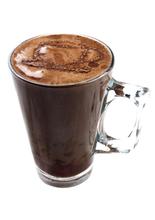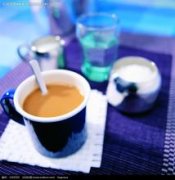A brief introduction to the description of the flavor and flavor characteristics of coffee beans in the fragrant and delicious Tianyi Manor

Dry aroma (1-5): 3.8
Wet aroma (1-5): 3.8
Acidity (brightness) (1-10): 8.9
Taste (layered) (1-10): 8.8
Palate (alcohol thickness) (1-5): 3.4
Aftertaste (residue) (1-10): 8.9
Balance (1-5): 2
Basic score (50): 50
Total score (maximum 100): 89.6
Strength / main attributes: medium strength / clear chocolate flavor with citrus and spice embellishment
Recommended baking degree: full city
Contrast: very delicate, clear, clear Nicaraguan coffee
Nicaraguan coffee has a wide range of flavor properties. Some coffee has a high alcohol thickness like Mexican coffee, while others have bright acidity like African coffee. Most of the varieties used in Nicaraguan coffee are traditional Tibica, and a few varieties of bourbon and Kaddura are grown.
Generally speaking, Nicaraguan coffee is characterized by calmness but without losing its flavor. Both Full city and Viennese are good choices when baking Nicaraguan coffee. Medium and deep roasting will bring mellow bitterness and excellent balance to Nicaraguan coffee.
Nicaragua Shangri-La Esperanza
Producing country: Nicaragua
Grade: SHG
Planting area: Sinotega
Brand name: Shangri-La Esperanza
Treatment method: wet treatment and solarization
Appearance: 0dplash 300grgrgrgr17-18SCR
Variety: Kaddura
Note: the dry aroma is full of chocolate, accompanied by hazelnut and cocoa aromas. The wet aroma also has the smell of chocolate, accompanied by the smell of orange peel. With the baking degree of city+, the bright lemon acid and long cocoa finish are wonderful.
Tianyi Manor, located in Dipilto, grows coffee on 10 plots above 1350 meters above sea level. When the current landowner Misael Sauceda Olivera inherited from his father, there were only two plots for planting and development, and then he bought land from his neighbors, which has grown to its present scale. Thanks to the efforts of the manor owner Misael Sauceda Olivera, Tianyi Manor has been shortlisted for many times in COE, while constantly making progress, improving the coffee planting conditions and coffee bean processing mode in the manor. It was still ranked 24th in 2007, rose to the fourth place in 2008, and was in high spirits in 2012. The planting conditions of Nicaragua, the runner-up, are not inferior to those of Central American countries. It is grown in shaded coffee at high altitude. It tastes round and balanced with less sharp acidity. The main unknown factors are war and hurricanes, resulting in the unsustainable operation of a single farm. There is no historical data for raw bean merchants to track and check farm data until the bad factors leading to coffee quality are removed after 2003, and backward traffic is also fully built. Good coffee continues to emerge. As a laggard, they have achieved quite a sensation in Nicaragua Nicaragua 2005 CoE (Cup of Excellence) competition winning coffee beans, that is, the competition winning coffee beans, the output is very small, relatively rare. The appearance is very neat, basically do not need to pick, it is recommended to bake around the middle of the bean, cinnamon roast cinnamon baking degree.
Nicaragua of Nicaragua is known as "the country of volcanic lakes" because of its many lakes and volcanoes. The volcanic soil rich in minerals produces high-quality coffee beans. The most famous coffee produced by volcanic ash soil is Kona kona, Hawaii.
The Cup of Excellence is the most esteemed award given out for specialty coffees. These awards come from a strict competition that selects the very best... The Cup of Excellence competition is selected by the Coffee Competition, an American non-profit organization. Such competitions will last for dozens of days, and only a very small number of coffee beans have been selected as the highest honor after being severely judged by coffee judges and world-class professional cup testers. The organizers then auctioned the coffee beans to bidders around the world, and the competition was often fiercely covered with volcanic ash and tree shade, resulting in high-quality Nicaraguan coffee with a mediocre, soft and slightly sour flavor. Nicaraguan coffee is the largest of all coffee beans, while MADRIZ (Madriz) is located in the mountains of northern Nicaragua, adjacent to NuevaSegovia,Jinotega and Esteli, a quiet and elegant area known as Somoto Canyon, inhabited mainly by indigenous peoples of various tribes and people who mixed with the Spaniards in the colonial period (mostly Chorotegas). The local production of coffee, the development of arts and crafts processing trade, as well as traditional delicacies. Madriz is characterized by a cool climate, its small town looks simple, but features beautiful roofs and special tile white buildings, there are also many coffee plantations, and the mountains are covered with verdant pine and oak forests.
Madriz is an ecological coffee with a very hard shell. In the pure natural planting environment, it uses more complex operations to maintain the delicate aroma and taste of the coffee; it is produced in northern Nicaragua between Matagalpa and Jinotega, with an average annual rainfall of 1500-1700mm and a temperature of 20-29 degrees Celsius. All of them choose coffee manually, and the cost of labor and time alone is much higher than that of ordinary beans.
Sandino National Liberation Front: the ruling party. Established on July 23, 1961, mainly composed of workers, farmers and intellectuals, it waged a long armed struggle to overthrow the military dictatorship of Somoza. He was in power from July 1979 to April 1990. He won the general election in November 2006 and returned to power after 16 years of loss of power. Won again in the general election in November 2011 and remained in power. General Secretary Daniel Ortega, the current president.
Independent Liberal Party: opposition party. Founded in 1944, it is mainly composed of members of the Liberal nationalist Party who are dissatisfied with the Somoza family. In November 2011, his candidate Gadya took part in the presidential election, ranking second with 31.13% of the vote. Chairman Educardo Montealegre.
Constitutional Liberal Party: opposition party. He took office for the first time in 1996. Won again in the general election in November 2001. Lost the general election in November 2006. The current chairman, Maria Ayd Osuna (female), General Secretary Miguel Rosales Ortega.
Nicaraguan Freedom Union: opposition party. Founded in 2006 by former Interior Minister Montealegre, it is mainly composed of members of the Constitutional Liberal Party who are dissatisfied with Alemann's alliance with SPLF. In November 2006, his candidate Montealegre took part in the presidential election, ranking second with 28% of the vote.
Sandino Reform Movement: opposition party, founded on 18 May 1995. It is mainly composed of some cadres, intellectuals and artists separated from the Sang Jiefang, and advocates the maintenance of social democracy, legal system, and fairness. Chairman Enrique Saenz
Important Notice :
前街咖啡 FrontStreet Coffee has moved to new addredd:
FrontStreet Coffee Address: 315,Donghua East Road,GuangZhou
Tel:020 38364473
- Prev

A brief introduction to the treatment method of grinding degree and baking degree of fine coffee beans in Arida Manor with elegant and charming fruit aroma.
This bean is washed and processed with fresh emerald green, full and glossy, and looks like a high-density hard bean at a glance, the coffee at Poquet Lelida Manor in Panama Province, Panama wbrChiriqui wbr wbrBoquete wbrFinca wbrLerida wbrPlantation. Baked to an obvious degree of high fruit aroma shows, the entrance is also as sour and sweet as juice
- Next

A brief introduction to the Origin, Development, History and Culture of Fine Coffee beans in Tianyi Manor
The Cup of Excellence is the most esteemed award given out for specialty coffees. These awards come from a strict competition that selects the very best... Cup of Excellence Competition, evaluated by the Coffee Competition, an American non-profit organization
Related
- Does Rose Summer choose Blue, Green or Red? Detailed explanation of Rose Summer Coffee plots and Classification in Panamanian Jade Manor
- What is the difference between the origin, producing area, processing plant, cooperative and manor of coffee beans?
- How fine does the espresso powder fit? how to grind the espresso?
- Sca coffee roasting degree color card coffee roasting degree 8 roasting color values what do you mean?
- The practice of lattes: how to make lattes at home
- Introduction to Indonesian Fine Coffee beans-- Java Coffee producing area of Indonesian Arabica Coffee
- How much will the flavor of light and medium roasted rose summer be expressed? What baking level is rose summer suitable for?
- Introduction to the characteristics of washing, sun-drying or wet-planing coffee commonly used in Mantenin, Indonesia
- Price characteristics of Arabica Coffee Bean Starbucks introduction to Manning Coffee Bean Taste producing area Variety Manor
- What is the authentic Yega flavor? What are the flavor characteristics of the really excellent Yejasuffi coffee beans?

